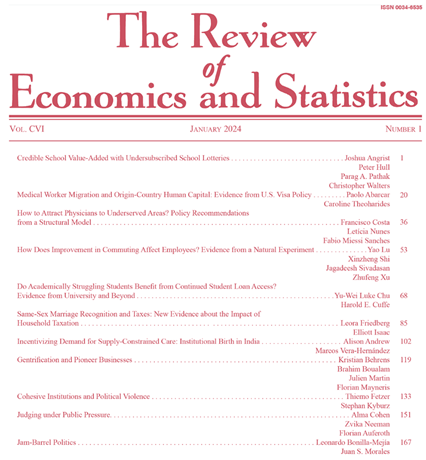Methodological Apparatus of Cognitive Modeling of Socio-Economic System (University)
IF 7.6
1区 经济学
Q1 ECONOMICS
引用次数: 0
Abstract
Purpose of the study. The aim of the study is to improve the methodological apparatus of cognitive modeling of socio-economic systems (SES) and predicting the indicators of their functioning and development, which ensures an increase in the accuracy and reliability of the results obtained. Existing models and methods do not fully provide the necessary accuracy and reliability of models that requires the development of the mathematical apparatus of cognitive modeling in terms of improving the quality of the developed cognitive models.Materials and methods. To achieve this goal, methods of an integrated approach to solving the problem, decomposing it into interrelated stages, describing the content of each stage in their relationship and presenting a generalized version of the methodology, taking into account the characteristics of the object of study, were used. The developed approach provides creating a more accurate and reliable cognitive model. The effectiveness of the developed methodological apparatus is shown.Results. A detailed analysis of the existing criteria and approaches to solving the problem of verification of cognitive models was carried out, which showed the absence of a unified methodology and an integrated approach in solving problems of cognitive modeling of SES based on cognitive maps. A set of techniques that implement the stages of cognitive modeling has been developed. The results of a comparative analysis of the developed approach with the existing ones are presented.Conclusion. A comprehensive solution to the problem of creating a cognitive model for analyzing and predicting the activities of a university is proposed, which includes a set of stages: the stage of creating the problem field of the situation; identification of factors and relationships between them; the stage of making a cognitive map and its verification, as well as the stage of analyzing the system characteristics of the cognitive model, validating the cognitive model. The developed methodological apparatus includes a set of techniques aimed at obtaining an adequate model that provides more accurate and reliable results of modeling the object of study.社会经济系统认知建模的方法论工具(大学)
研究目的:这项研究的目的是改进社会经济系统(SES)认知建模的方法装置,并预测其功能和发展的指标,从而确保所获得结果的准确性和可靠性的提高。现有的模型和方法不能完全提供模型的必要准确性和可靠性,这就要求在提高已开发的认知模型的质量方面发展认知建模的数学设备。材料和方法。为了实现这一目标,使用了综合方法来解决问题,将其分解为相互关联的阶段,描述每个阶段的内容及其关系,并提出一个广义的方法版本,考虑到研究对象的特征。所开发的方法提供了创建更准确和可靠的认知模型。所开发的方法装置的有效性得到了证明。对现有解决认知模型验证问题的标准和方法进行了详细分析,发现基于认知地图的SES认知建模问题缺乏统一的方法论和集成的解决方法。已经开发了一套实现认知建模阶段的技术。并将所提出的方法与现有的方法进行了对比分析。针对高校活动分析与预测的认知模型构建问题,提出了一种全面的解决方案,该方案包括以下几个阶段:情境问题场的构建阶段;识别因素及其之间的关系;认知图的绘制和验证阶段,以及分析认知模型的系统特征,验证认知模型的阶段。开发的方法学设备包括一套旨在获得适当模型的技术,该模型提供了对研究对象建模的更准确和可靠的结果。
本文章由计算机程序翻译,如有差异,请以英文原文为准。
求助全文
约1分钟内获得全文
求助全文
来源期刊

Review of Economics and Statistics
Multiple-
CiteScore
8.50
自引率
0.00%
发文量
175
期刊介绍:
The Review of Economics and Statistics is a 100-year-old general journal of applied (especially quantitative) economics. Edited at the Harvard Kennedy School, the Review has published some of the most important articles in empirical economics.
 求助内容:
求助内容: 应助结果提醒方式:
应助结果提醒方式:


